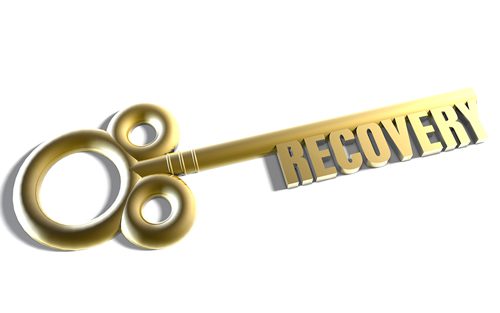 Once you leave the structured environment of a drug and alcohol rehab, you’ll be tasked with managing your recovery independently.
Once you leave the structured environment of a drug and alcohol rehab, you’ll be tasked with managing your recovery independently.
Keep in mind the following tips to help you stay on the right path.
1. Focus on the Present
When you’re in recovery, it’s tempting to dwell on past mistakes or worry about what the future holds. Unfortunately, neither of these strategies is productive. Focus on getting through one day at a time.
When your mind starts spinning out of control, mindful breathing is one way to reestablish your focus. Just five to 10 minutes of this practice has been proven to offer significant stress relieving benefits. Sit in a comfortable position in a chair or on a floor cushion. Relax your muscles, then turn your attention to your breath. Feel the natural sensations associated with each inhale and exhale. As your mind starts to wonder, redirect your attention back to your breathing.
2. Know Your Triggers
Managing cravings for drugs and alcohol is one of the most challenging aspects of recovery. However, this task is easier if you have a clear understanding of what triggers your urge to use and what coping strategies work best for you.
When you have a craving, write down what you were thinking, feeling, and doing at the time. Look for patterns such as being in places where alcohol is served, feeling stressed out about work responsibilities, or seeing something that reminds you of a traumatic event from your past. When you try different coping strategies such as distracting yourself, exercising to relieve tension, or listening to soothing music, jot down how effective each tactic was.
3. Remind Yourself of Why You’re in Recovery
When you’re making big changes in your life, it’s easy to lose sight of the reason for your actions. If you start to feel discouraged, take a few minutes to remind yourself why you choose to seek addiction treatment. Maybe you’re motivated to get sober so you can be a better parent to your child and a better partner for your spouse or maybe you’re seeking treatment to reverse some of the health effects of addiction.
Whatever your reason for seeking treatment, putting little reminders of your motivation for recovery around your home can be helpful. Seeing a special photo, a child’s drawing, or a letter from your spouse when you’re feeling discouraged or experiencing a craving can give you the strength you need to stay on the right path. Coming up with a recovery mantra that incorporates your motivation for change, such as “I deserve to be happy” or “I was sick and tired of being sick and tired” is another option to consider.
4. Let Friends and Family Help You
If you feel like you’ve let your friends and family down as the result of your addiction, it can be hard to ask for help when you need it. However, these are the people who love you the most. Remember that they want to see you make positive changes in your life.
Your loved ones might not understand every challenge you face in recovery, but they’ll probably be eager to help if you need a ride to a meeting or a polite way to excuse yourself from a social event where alcohol is being served. Learning to ask for help and show gratitude for the assistance can also be an important step in healing these relationships.
5. Stay Away from Unnecessary Drama
Although your loved ones will likely want to do whatever they can to assist in your recovery, you may encounter people who aren’t respectful of your choice to seek addiction treatment. They might encourage you to reminisce about past substance abuse or put you in situations where you feel pressured to use again. If you politely ask them to change their behavior, they might get defensive or try to manipulate you into feeling guilty about your sobriety.
People who create unnecessary drama during your addiction recovery are often jealous of the fact that you’re doing what’s necessary to build a brighter future for yourself. That’s unfortunate, but you don’t need to let their negative attitude get you down. You deserve to be surrounded by people who support and respect your choices, even if that means removing certain individuals from your social circle entirely.
6. Be Patient
Recovery is a process that’s often filled with challenges and setbacks. It’s understandable to want to consider yourself “cured” as soon as possible, but you need to be patient. Just as addiction doesn’t develop overnight, you can expect to immediately adapt to a sober lifestyle. Be patient with yourself as you embark upon this journey.




